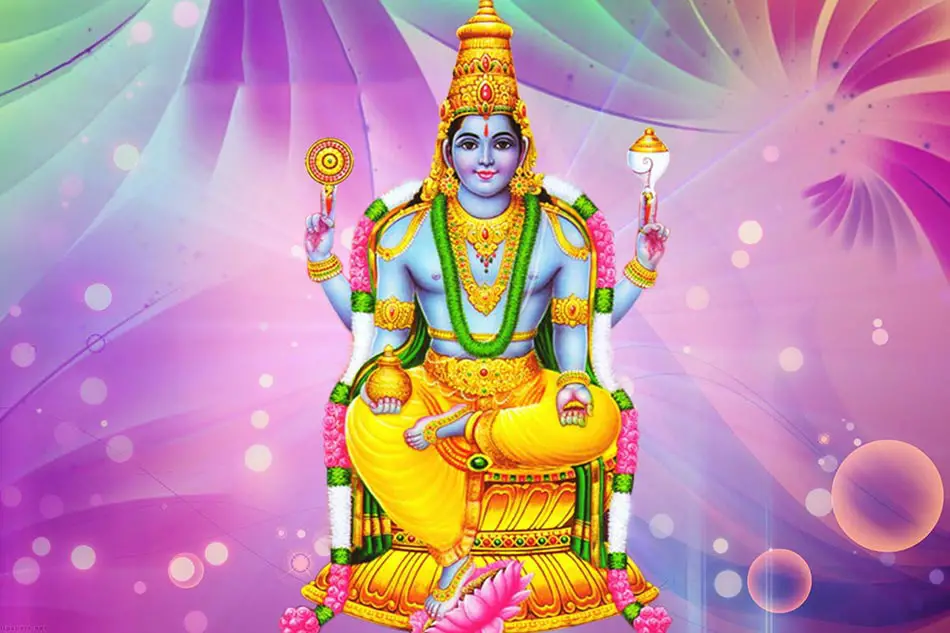Hindu Mythology
Dhanvantari : The Hindu God of Medicine

Hinduism has a god for every aspect of life. Skanda is the god of war, Yama is the god of the dead, Brahma is the god of birth, and the goddess Parvati has marriage covered.
When it comes to the Hindu god of medicine, we look to Dhavantari, an avatar of Lord Vishnu and known as the god’s own physician. Over the millennia, the story of Dhanvantari and his teachings has led to a rich tapestry of legend and a system of alternative medicine called ayurveda that is still widely practiced today. Hindu or otherwise, Dhanvantari has had a major impact on Indian medical practice over the centuries, and the story of ayurveda is fascinating to explore.

However, to understand the significance of Dhanvantari to the Hindu religion requires us to look at his fascinating origin story called the Samudra Manthan.
Narrated in the Bhagavata Purana and other Vedic texts, the Samudra Manthan is a story as epic as anything you’d see at the cinema. Thanks to a curse from the sage Durvasa, the gods became weak and mortal, leading to the demon king Bali defeating them at every turn. At a loss, the gods ascended the heavens to see Lord Vishnu and seek his wisdom. Lord Vishnu advised the deities that they need to form an alliance with the demi-gods known as the Ansura and churn the ocean of milk until ambrosia is formed to replenish their strength. With great effort, the gods used the huge mountain Mandara as a churning pole and the serpent god Vasuki as a rope. With deities on one side and Ansura on the other, the milky waters were churned.
Emerging from the water came Dhanvantari, the heavenly physician, bringing with him a pot of ambrosia known as amrita and a book of medicine called the Ayurveda. Dhanvantari is typically depicted similarly to Vishnu, blue with four hands, but holding medicinally related items instead, such as a shankha, a sea shell often burned and turned to ash in the ayurvedic tradition.

And it is this ayurvedic system of medicine that Dhanvantari is most revered for, imparting his divine knowledge and helping to heal the world.
With a rich history and oral tradition, Ayurveda medicine believes we need to consider all aspects of life when treating someone for an illness or ailment. The tradition, therefore, involves multiple methods of treatment, including:
- Herbal medicines
- Healing foods
- Meditation
- Yoga
- Laxatives and enemas
Despite being considered alternative medicine, Ayurveda has been treating people in Indian and Nepal regions for over 2000 years, where it is still widely practiced today, with 80% of people there still report using its techniques.
The system is considered an “eternal science,” existing in the universal consciousness of Brahma, the primary god of creation in Hinduism. The book of Adyurveta that Dhanvantari brought with him out of the depths is meant to be this knowledge straight from the divine mind. Because the knowledge is universal, aside from the teachings of deities like Dhanvantari, it is considered accessible by anyone through meditative practice too.

Tradition has it that as the Hindu god of medicine, Dhanvantari incarnated himself as a King of Varanasi, a city on the banks of the Ganges river. In this incarnation, he shared the eternal science of Ayurveda and taught physicians and sages how to treat people for illnesses and disease.
Over the millennia, these teachings have been encoded in historical texts that range from straight prose to beautiful, poetic verse. We can trace these texts back as far as the 8th century BCE, where instruction and theory began to be written down for general practice.
The primary texts of ayurvedic medicine are known as the Brhattrayi, a trio of books that cover the majority of treatment and theory. The first, Charak Samhita, is a poetic text that describes the general theory and practice of Ayurveda. The Sushruta Samhita is a surgical text supposedly originating directly from the teachings of Dhanvantari when he was incarnated as the king of Varanasi. The final text is the Asthanga Sangraha and Hridaya, which are manuals on aligning with the material aspects of life.

To show gratitude for this imparting of medical wisdom, Hindus celebrate Dhanvantari every year, on the 28th of October, shortly before the festival of light, Diwali. The festival is known as Dhanteras, and people prepare for it by thoroughly cleaning their homes, ensuring good hygiene, and whitewashing walls to indicate cleanliness. Upon the big day, people welcome Dhanvantari into their homes with colorful lights and trinkets around their doorway, hoping for blessings of health and happiness.

 Animal Astrology4 years ago
Animal Astrology4 years agoSignificance of Pigeons Coming To Your House

 Astrology4 years ago
Astrology4 years agoHow To Read Navamsa Chart In Vedic Astrology (D9 Chart)

 Astrology4 years ago
Astrology4 years agoBenefits of Chanting Siddha Kunjika Stotram

 Animal Astrology3 years ago
Animal Astrology3 years agoBenefits of Feeding Dogs in Astrology: How They Help Remove Graha Dosh

 Astrology4 years ago
Astrology4 years agoMassive Fame In Vedic Astrology

 Animal Astrology4 years ago
Animal Astrology4 years agoMeaning of Owl Coming To Your House Or Seeing One| Owl Symbolism in Vedic Astrology

 Animal Astrology4 years ago
Animal Astrology4 years agoBird Poop Meaning In Vedic Astrology: Does it Bring Good Luck?

 Astrology4 years ago
Astrology4 years agoBudh Aditya Yoga Benefits In Different Houses: Can It make you Ultra Successful?

















